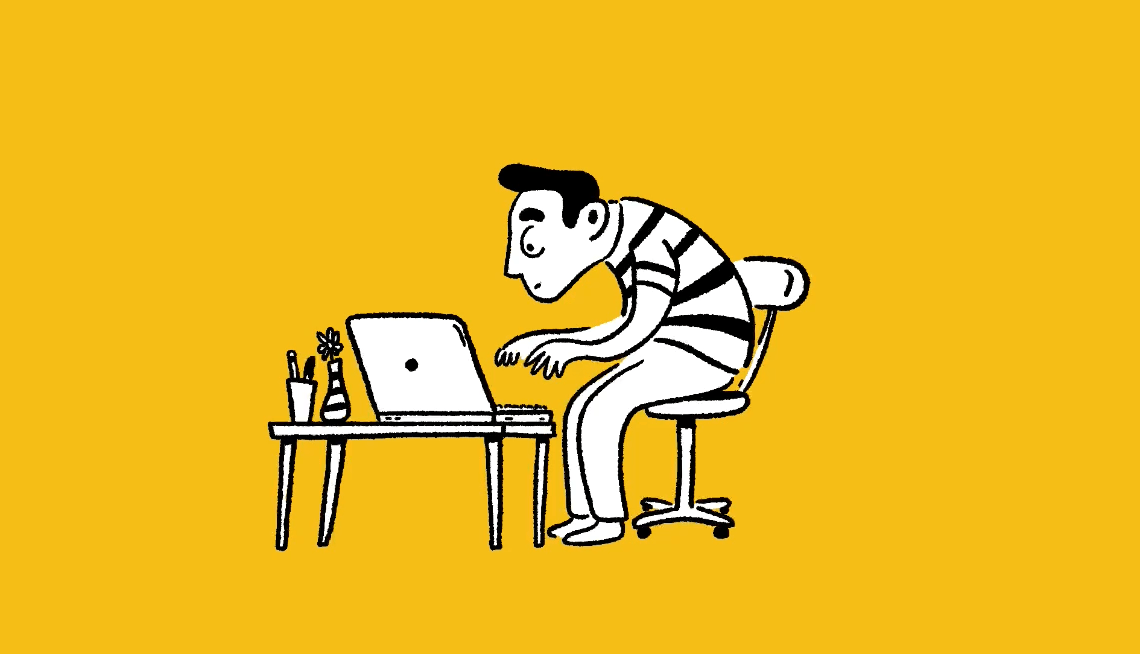AARP Hearing Center


First of all, I want to emphasize how important posture is. If our posture is poor, it can contribute to neck and back pain, cause headaches, make us feel unsteady and lead to difficulty walking. Bad posture causes the muscles around our chest to tighten, making it harder to breathe. It can also lower self-confidence — and make us appear shorter.
As we become more dependent on laptop computers, iPads, cell phones and other devices, I see patients sitting in my waiting rooms, people walking around on the streets and riding the trains and buses, hunched over with their heads down and their necks and spines curved, staring at their screens. I read a Pew Research survey that said Americans 60 years and older spend more than half their daily leisure time, four hours and 16 minutes, in front of screens.
On top of that, poor posture is something that usually increases as we get older because our discs compress naturally as we age. When you combine the aging process with the use of devices, you can understand how hunching can worsen.


Ask Dr. Adam
Adam B. Rosenbluth, M.D., is an internist and cardiologist in New York City. Each Monday, he’ll weigh in on your questions about how to make your body work better for you. His AARP book will be published in 2027. Join in on the conversation on social media @dradamrosenbluth to learn to move the needle on your personal health in an achievable way.
If you look at X-rays of the spine from a side view of people who spend a lot of time looking down, you’ll see their upper thoracic spine, located in the top and middle of their backs, curved forward like a “C”. If this bent posture is maintained, it doesn’t take long for the back to be permanently curved. Some people may eventually struggle to lift their heads. There’s actually a syndrome associated with this stance called FHP — or forward head posture.
It helps to create healthy habits around screen time. You’re probably not going to give up your devices, but you might consider turning them off for a number of hours every night, as well as turning them off at meal times. Also, certain apps let you know just how long you’ve been staring at your computer screen or how much time you’ve spent looking at your phone.





































































You Might Also Like
The Layperson’s Guide to Painkillers
How different medications are used and how to deal with side effectsRecommended for You